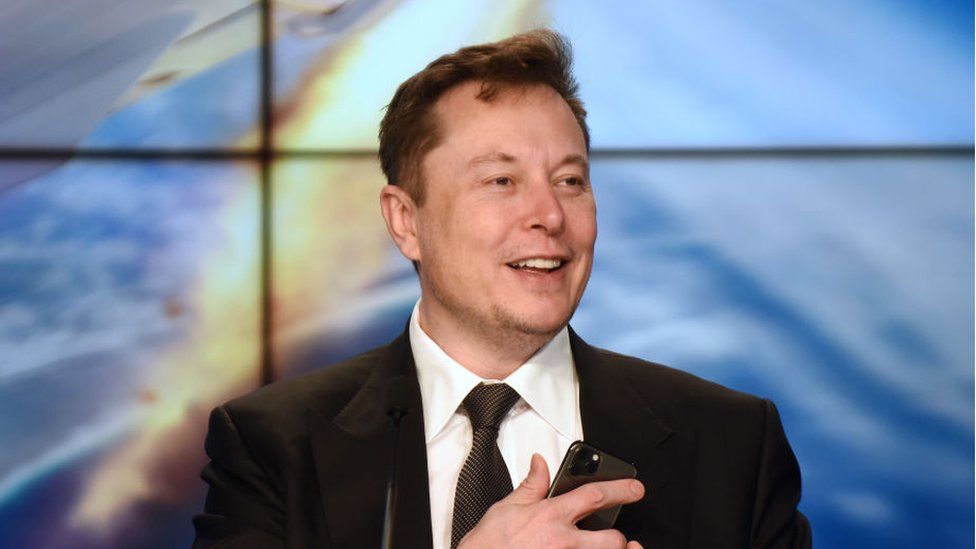ARTICLE AD BOX
 Image source, Getty Images
Image source, Getty Images
Elon Musk's Neuralink firm is in the news but he also owns the rocket company SpaceX
By Shiona McCallum
Technology reporter
Elon Musk's brain chip firm Neuralink has said that the US Food and Drug Administration (FDA) has approved its first human clinical trial, a critical milestone after earlier struggles to gain approval.
The FDA nod "represents an important first step that will one day allow our technology to help many people," Neuralink said in a tweet.
It did not elaborate on the aims of the study, saying only that it was not recruiting yet, and more details would be available soon.
What is Neuralink's aim?
The firm says it is trying to create a new way to allow computers to communicate directly with the human brain.
The hope is that by doing this, Neuralink would be able to tackle complex neurological conditions which have so far proved beyond the capability of medical intervention. These range from paralysis and blindness to depression and schizophrenia.
How does it work?
The procedure would involve implanting a tiny hermetically sealed chip directly into a patient's brain.
The chip is connected to 1,024 tiny electrodes, no thicker than a human hair and is powered by a battery that can be recharged wirelessly. It would create an interface with an external computer, allowing it to both send and receive signals.
Is it safe?
There are three elements to this: short term physical risks; long term medical concerns; and ethical safety.
Any surgery involving the brain carries inherent danger, both of physical harm and rejection by the host. There has been extensive (and controversial) testing of the chips on animals.
A complaint filed in February to the US Department of Agriculture alleged cruel treatment of macaque monkeys who are being used to test the technology.
The fact that the FDA has approved the start of human testing, however, implies the company has overcome some of the challenges.
Maybe the more serious concerns come around the long-term consequences of having a device like this operating within the human brain, a vastly complex organ we are only beginning to understand.
Understandably there is no data as to what the potential harms may be. That will change with testing on humans and will be key to the development of similar products.
The final element, ethical safety, is more subjective. Technology like this is riven with concerns about data protection, potential uses and the possibility of human enhancement.
This means augmenting or enhancing the capabilities of the human brain beyond what we are currently capable of doing. For example, improving human cognition, sensory perception, or physical abilities. This always stirs strong emotions and raises ethical questions so there will be calls for close regulation of the sector.
What are the roots of Elon Musk's involvement?
The firm was founded in California by Elon Musk and a team of seven scientists and engineers in 2016. But of last year, of the eight cofounders, only two remained at the company.
Elon Musk brings an entrepreneurial approach to tackling an issue which many see as fundamentally scientific. He also inevitably brings something else - publicity. He is one of the most recognisable and controversial people on the planet.
When he speaks, generally people listen and react. His involvement in Neuralink is one of the reasons people are talking about it today.
Are other companies trying this?
Yes, quite a few are, with some said to be further on in their research than Neuralink. Black Rock Neuro Tech are working on a similar product, also implanting chips into the human brain.
There's lots of different work being done, however, not all of it so invasive. Meta, the parent company of Facebook, are thought to be working on wearable tech that would allow people to type with their minds.
Last week news emerged of a paralysed man helped to walk again by Swiss scientists. In short, this is a rapidly expanding field with many players.
Elon Musk's involvement guarantees that Neuralink will often win the race for publicity, but that will not ultimately decide which firms succeed.
That will come down to which technology works best and who can prove to regulators and markets that it is safe.

 2 years ago
61
2 years ago
61








 English (US) ·
English (US) ·